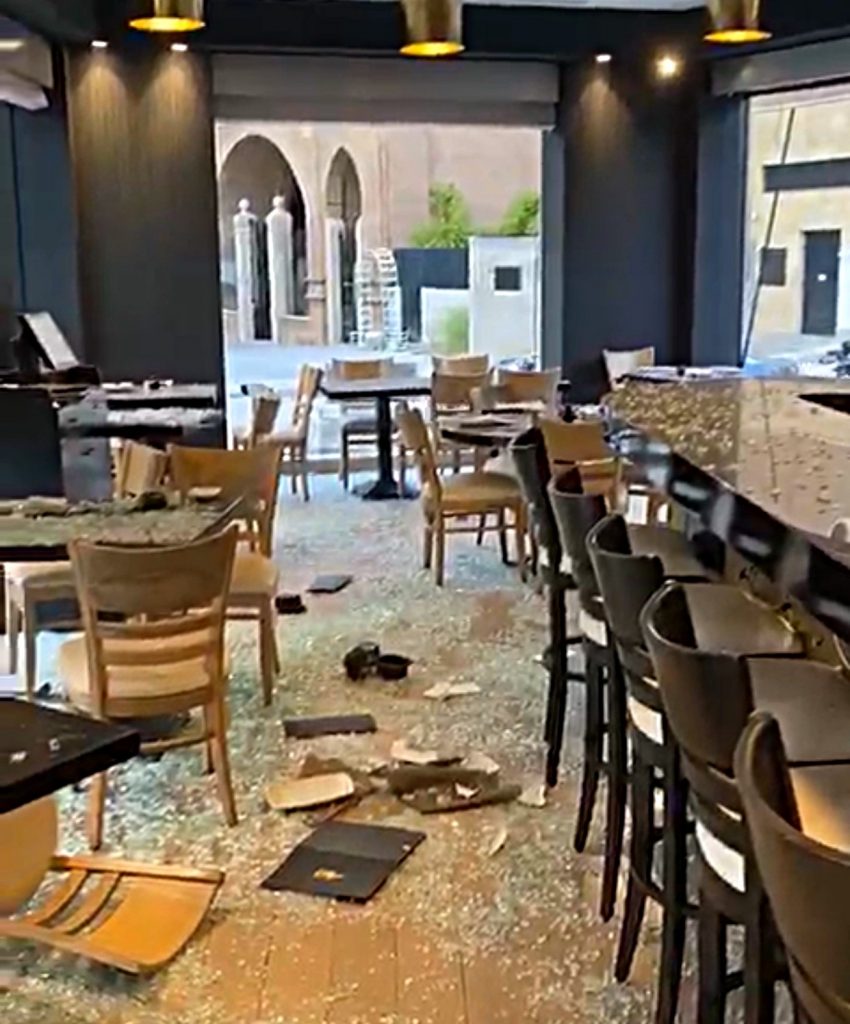
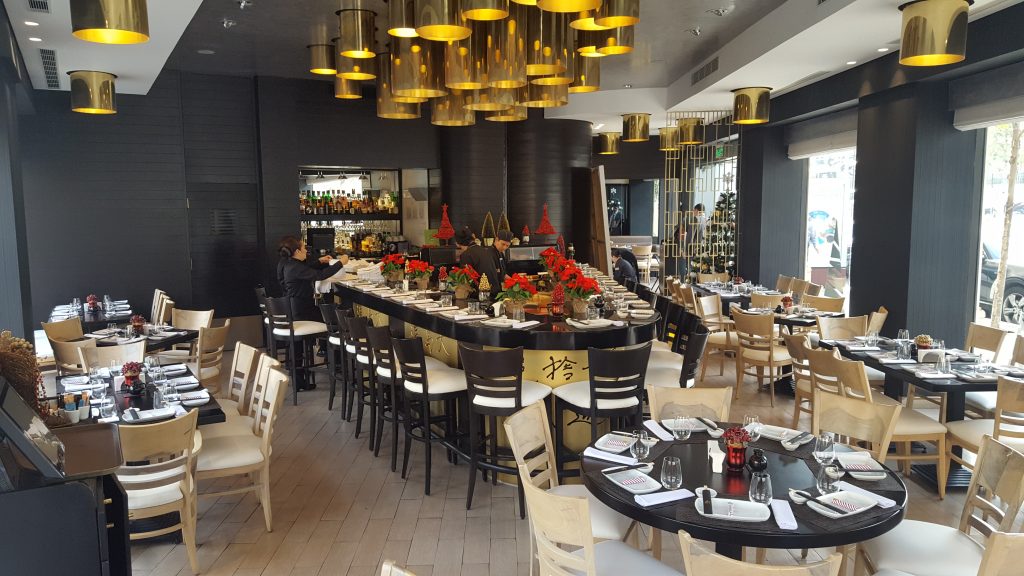
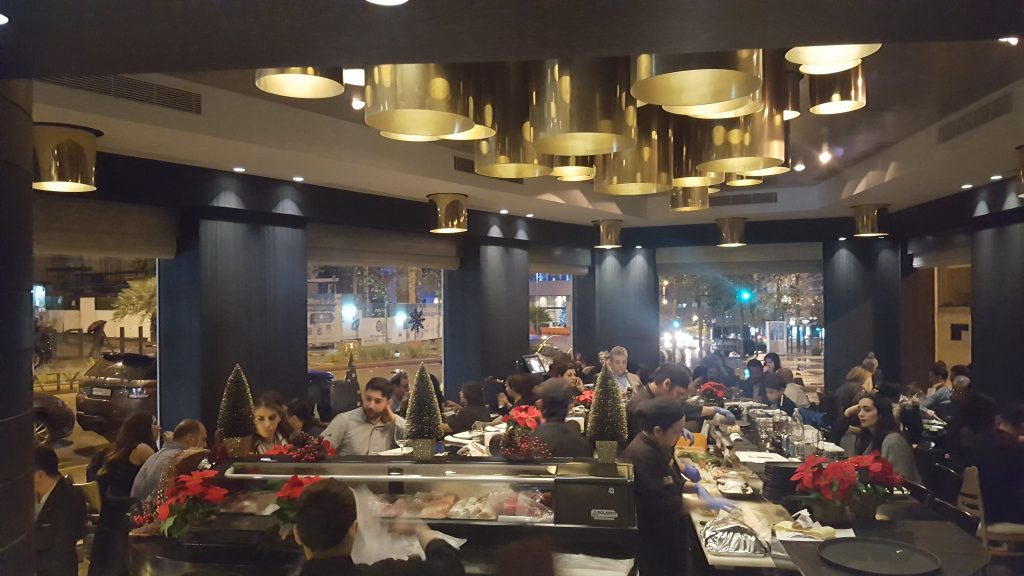
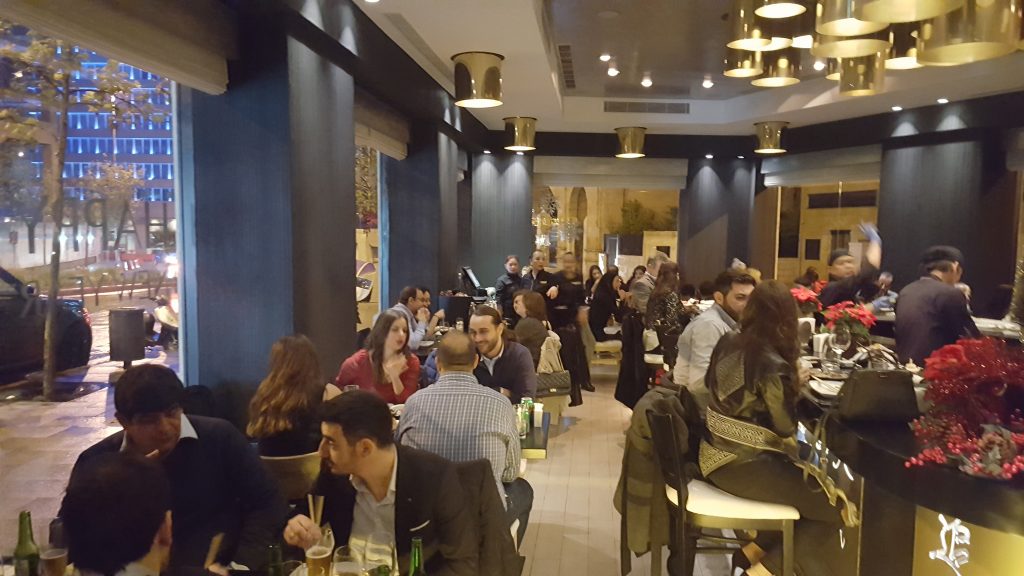
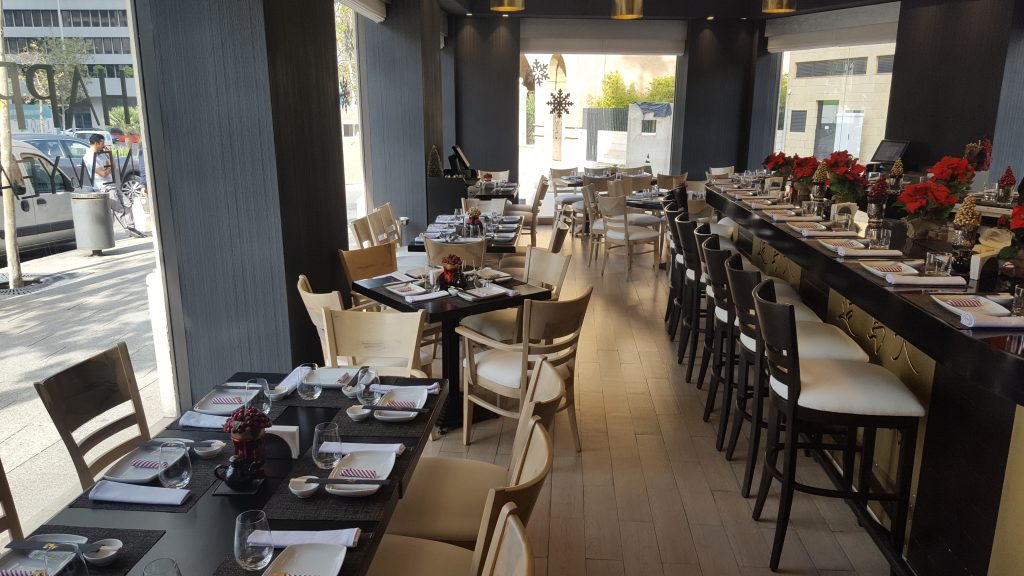
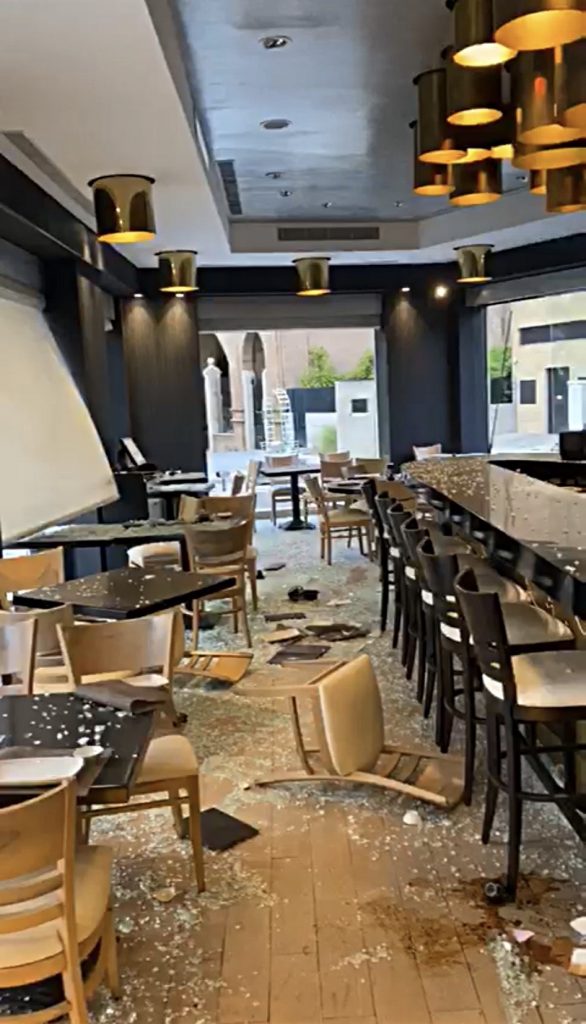
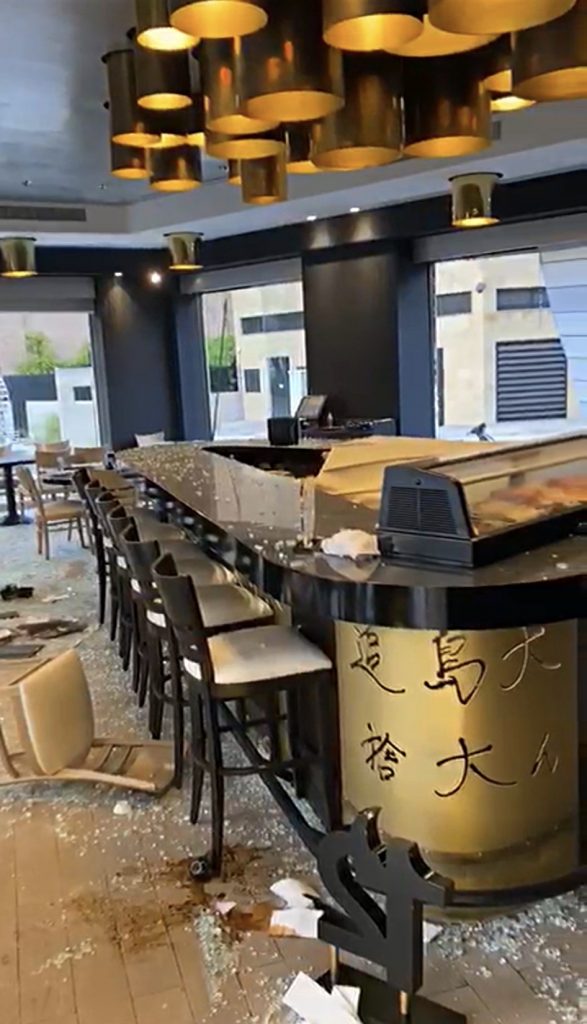
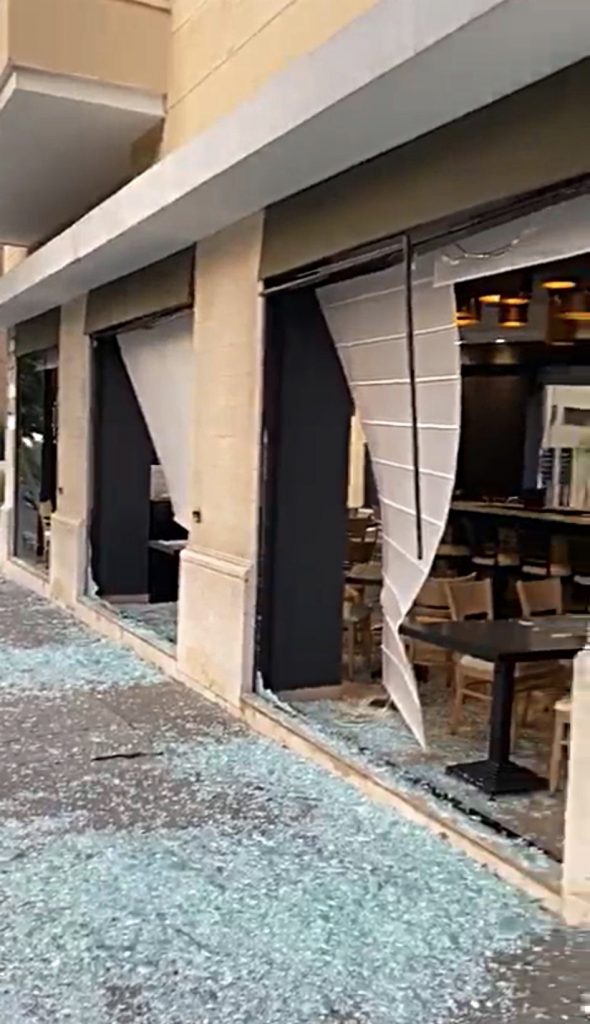








Carla Chahrour Dubai
An authentic Japanese restaurant Osaka Sushi Lounge in the Kantari area located in the Hamra district of Beirut, has unequivocally offered the widest selection of Sushi in Beirut since 2006.
Restaurant Owner Jihad Mikati spoke exclusively to Arab News Japan about Osaka’s culinary experience, the implications that the explosion earlier this month had on the business, and provided insight on the future endeavors of the restaurant in disaster-stricken Beirut.
“Osaka was established fourteen years ago to expand the Japanese options available in the country, allowing customers to enjoy their food leisurely within the atmosphere of the restaurant. We have worked with cost and quality regulators to develop the menu and ensure a certain standard by focusing mainly on the purity and quality of the ingredients, which are all imported on a regular basis from suppliers in Japan,” Mikati said.
Staying true to its time-honored traditional roots, one could be forgiven for thinking they’re in Japan upon entering the restaurant, thanks to the kimono-dressed waiters, the minimalist décor, the Japanese decorative writing, and dimly-lit intimate seating areas.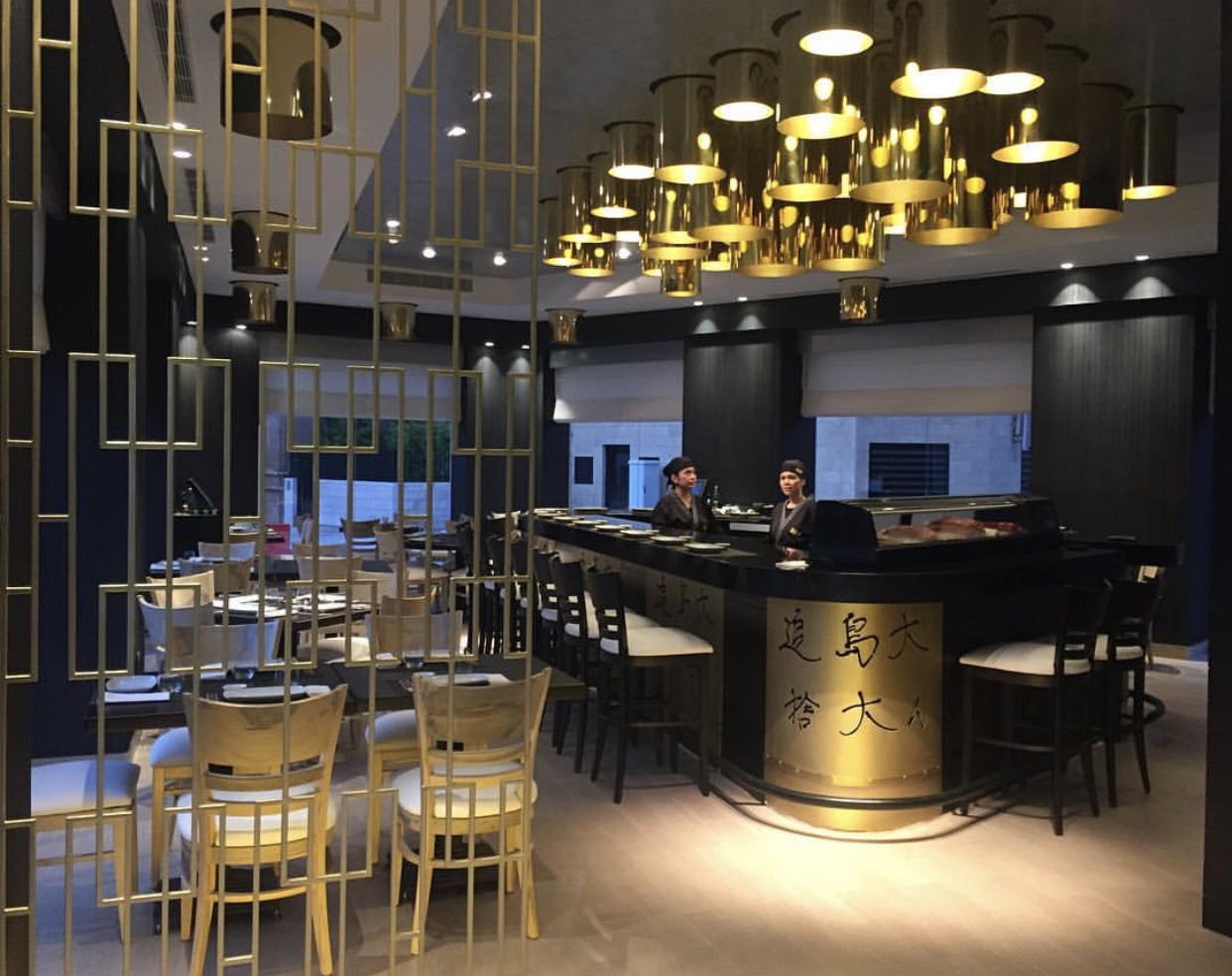
Offering a Japanese atmosphere of modern culture and ancient Japanese traditions, the menu includes many varied traditional dishes and appetites that Japan is famous for, as it varies between appetizers, soups, and salads of all kinds. As well as sushi, Maki, Sashimi, Gunkan, in addition to varieties of Teppanyaki, Japanese noodles and rice, and their various specialties dishes that depend on seafood such as the Flamed Lobster, poached grouper with shinsen salad and black cod, to satisfy the desires of Japanese cuisine lovers in Beirut.
“Ingredients are of paramount importance, with most being shipped directly from Japan twice weekly, prior to the COVID-19. They are treated with appropriate reverence by the chefs when creating the dishes. This is integral as raw fish can be dangerous to ingest if not to preserved adequately,” said Mikati.
With the help of several external companies assisting in regulating the cost and quality of Osaka since its inception, it quickly accumulated a loyal following for its sensuously appetizing cuisine.
This year, Osaka had planned to expand its brand through opening in Saudi Arabia. However, the progressions were postponed due to the COVID-19 coronavirus pandemic.
“The business was able to sustain itself during the coronavirus lockdowns by relying on deliveries. However, it has been more difficult than ever now with the financial crisis and dollar shortage. The foreign suppliers need to get payed in dollars, which has been hard to obtain,” Mikati said.
Adding onto the year of upheaval that had already taken a heavy toll on the restaurant, was the explosion that struck Beirut on August 4, killing nearly 178, injuring more than 6,000, leaving hundreds of thousands of people homeless, and destroying half the city, with Osaka being one of the thousands of buildings across the Lebanese capital that experienced the wreckage of the blast.
Located approximately 3.4 km from the Port, which was the site of the explosion, all the windows in Osaka restaurant were blown out, according to Mikati, and the bustling streets of the Hamra area, considered the most commercial center of the city, normally full of restaurants has been essentially covered with glass.
“There was glass everywhere and the restaurant was wrecked,” Mikati recalls of viewing his premises from the street.
Beirut’s restaurant owners have been reeling amidst this devastation, with damaged or destroyed shops compounding the challenges brought on by the widespread political unrest, the collapse of Lebanon’s banking system, and the COVID-19 pandemic.
“Even before the explosion, Osaka had witnessed a reduction in the number of customers, due to the virus and due to the financial situation, that has reduced people’s disposable income, making visits to restaurants less frequent for the majority of the population,” Mikati said.
“It will be a challenge to repair the damages, specifically since there is a shortage of glass in the country and the fact that the payment for the repair will most likely be in dollars makes it even harder due to the shortage of dollars in Lebanon” Mikati added.
Fortunately for Lebanon, its business community and its food and beverage industry, Osaka is determined to reopen as soon as possible.
“My partners and I have thankfully been able to secure an order of glass to repair the windows, and the restaurant is already under construction, it should take around ten days,” Mikati said.
“We are really hit with what happened, and we are hit from all the different ways possible. Today, I hope that things get back and that everybody returns to doing well in their businesses. I believe that Beirut will revive, even if it takes some time, ” Mikati added.